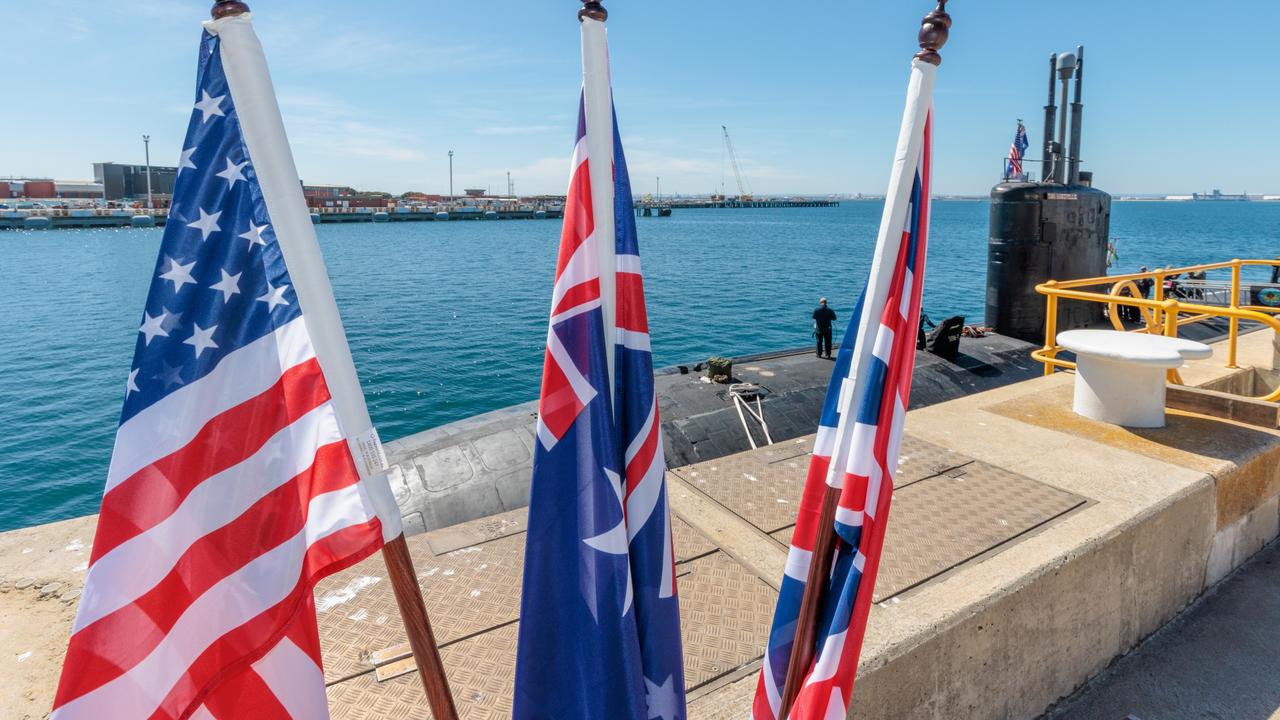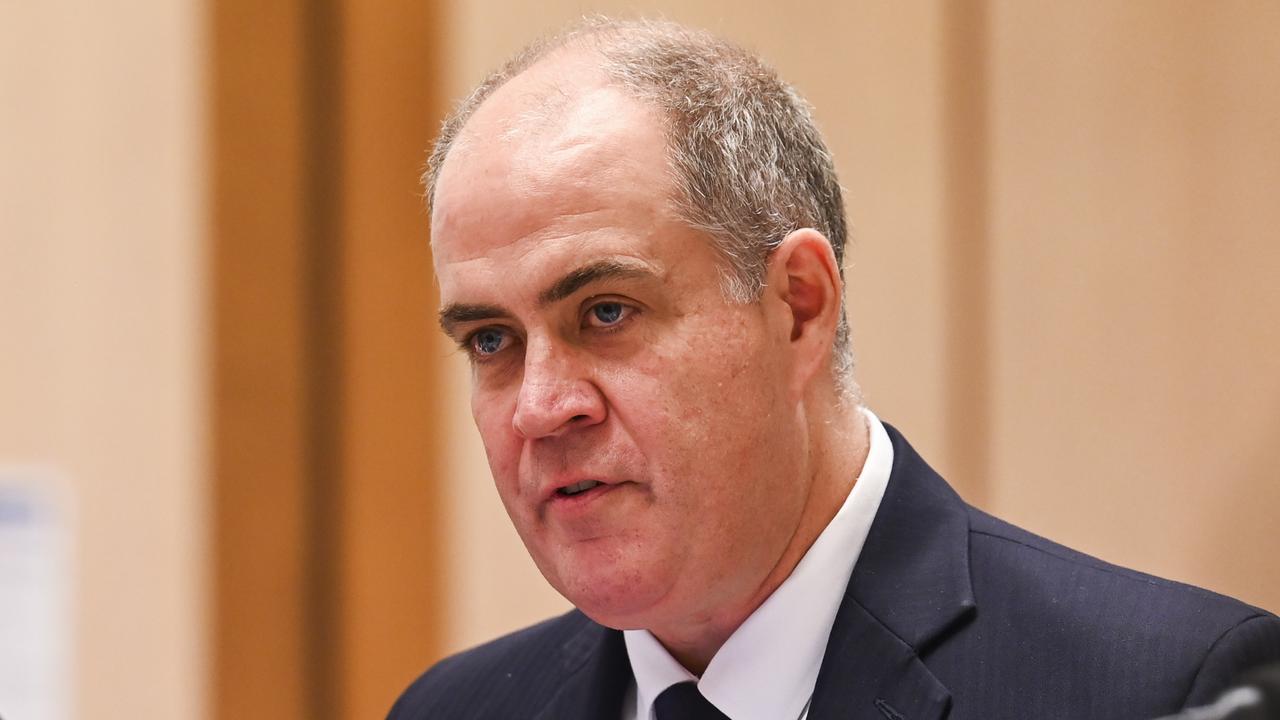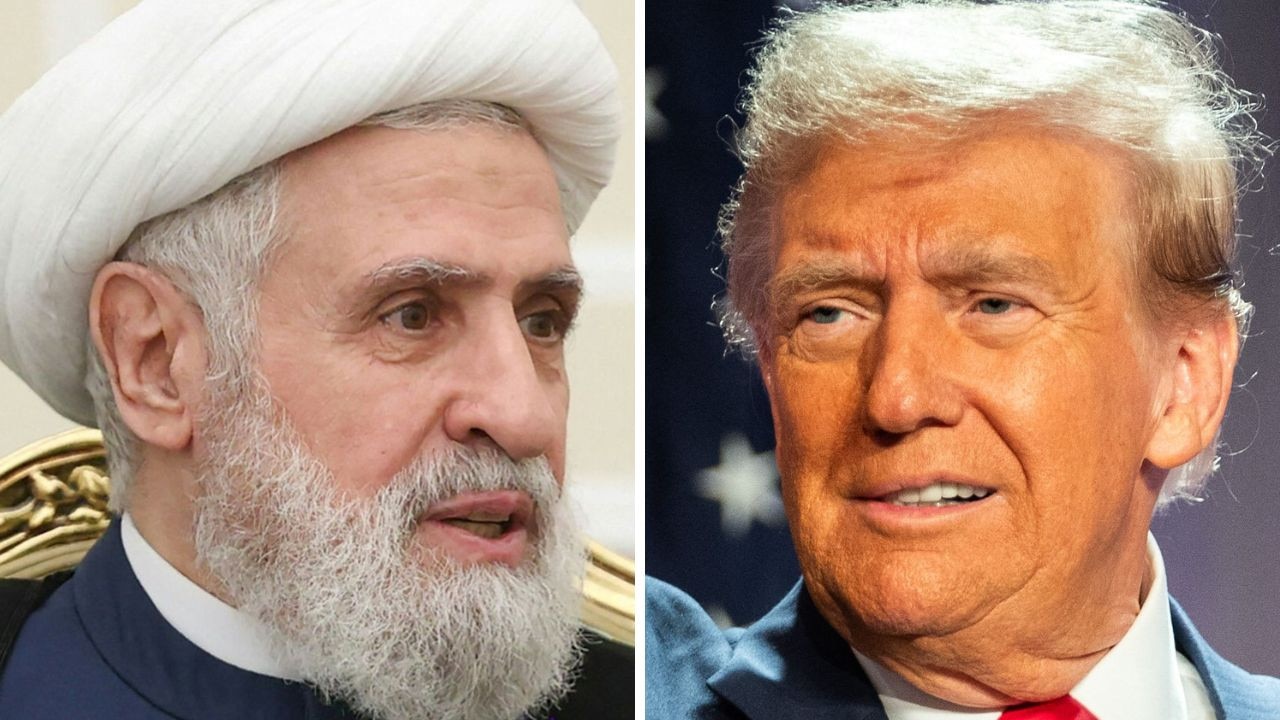Global implications of Donald Trump’s anti-NATO speech
Presidential candidate Donald Trump’s anti-NATO comments have global implications.
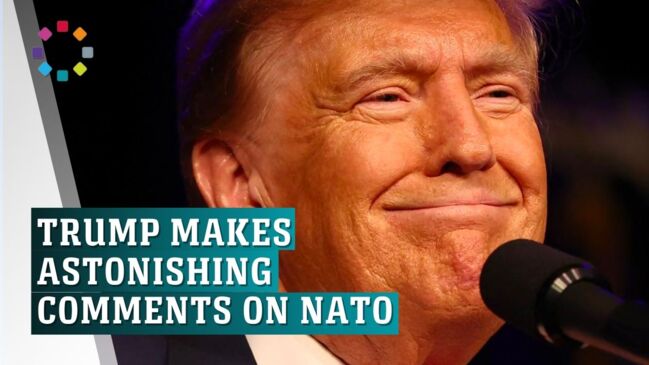
ANALYSIS
Trump says he will tell Putin to attack Europe – if they don’t pay him enough protection money. Europe believes him. And that means the unprecedented era of global prosperity since World War II is all but over.
Former US President Donald Trump is steamrollering through the Republican Party’s nomination process for the November elections. His trials for tax evasion, corruption, election interference, sexual assault, defamation – and insurrection – are motivating his supporters.
But his radical campaign-trail promises have dramatic global implications.
“One of the presidents of a big country stood up and said, ‘Well, sir, if we don’t pay, and we’re attacked by Russia, will you protect us?’ I said, ‘You didn’t pay, you’re delinquent? No, I would not protect you. In fact, I would encourage them to do whatever the hell they want. You got to pay. You got to pay your bills,” Mr Trump said during a 70-minute stump speech in Harrisburg, Pennsylvania.
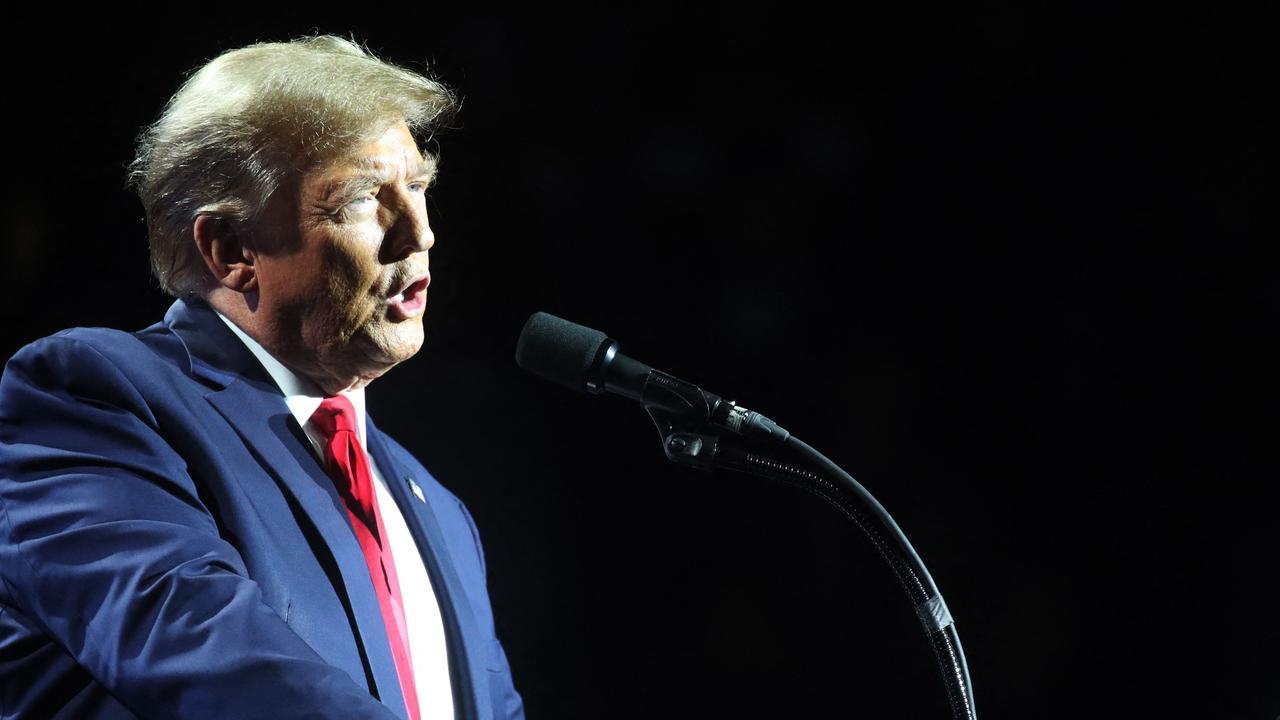
That’s just the latest incarnation of his longstanding anti-NATO, anti-European Union rhetoric.
But many international analysts see it as confirmation that the world order as we know it has ended.
“This is crazy,” says Stanford University professor of political science Michael McFaul. “And eight years later, Trump shows that he still doesn’t understand how NATO works! It’s not a protection racket. They don’t pay us to protect them. Geez.”
This is crazy. And 8 years later, Trump shows that he STILL doesn’t understand how NATO works! It’s not a protection racket. They don’t pay us to protect them. Geez. https://t.co/Ic1rSran1g
— Michael McFaul (@McFaul) February 11, 2024
War Studies analyst at Kings College London Ruth Deyermond is equally scathing. “Trump has always misunderstood NATO as a protection racket,” she tweeted. “I guess if you spent most of the late 20th century in the New York, New Jersey, Las Vegas real estate/casino business, it’s an understandable mistake.”
Beneath the bluster is a real issue – that many sovereign European Nations had sought a “peace dividend” by cutting defence spending after the collapse of the Soviet Union and the end of the Cold War.
In 2006, the alliance added a guideline that member states should aim to spend at least 2 per cent of their GDP on defence by 2024.
While spending has risen significantly since Russia’s annexation of Crimea in 2014, and further still since Vladimir Putin launched his full-scale invasion of Ukraine in 2022, as of last year 19 member states still fell short of the target.
Among them were geopolitical heavyweights France (1.9 per cent of GDP), Germany (1.57 per cent), Italy (1.46 per cent), Canada (1.38 per cent) and Spain (1.26 per cent).
“I think his substantive point is that they should be paying 2 per cent of GDP to the US,” adds Deyermond. “Absolutely agree that all NATO members should be spending at least this, but that’s not how he’s ever understood it – he really does seem to see it as protection money.”
What price appeasement?
“Every defence minister, chancellor, and head of state in Europe needs to watch this,” Professor Justin Bronk of Britain’s Royal United Services Institute (RUSI) says of Trump’s weekend speech.
“It’s insane, but he believes it. If he wins, the GOP (Grand Old Party) will fold as they have on Ukraine.
“We must urgently focus on building forces to defend Europe against Russia without major US reinforcement.”
It’s a view being pushed by several of Europe’s smallest – and poorest – members. But they all share borders with Russia.
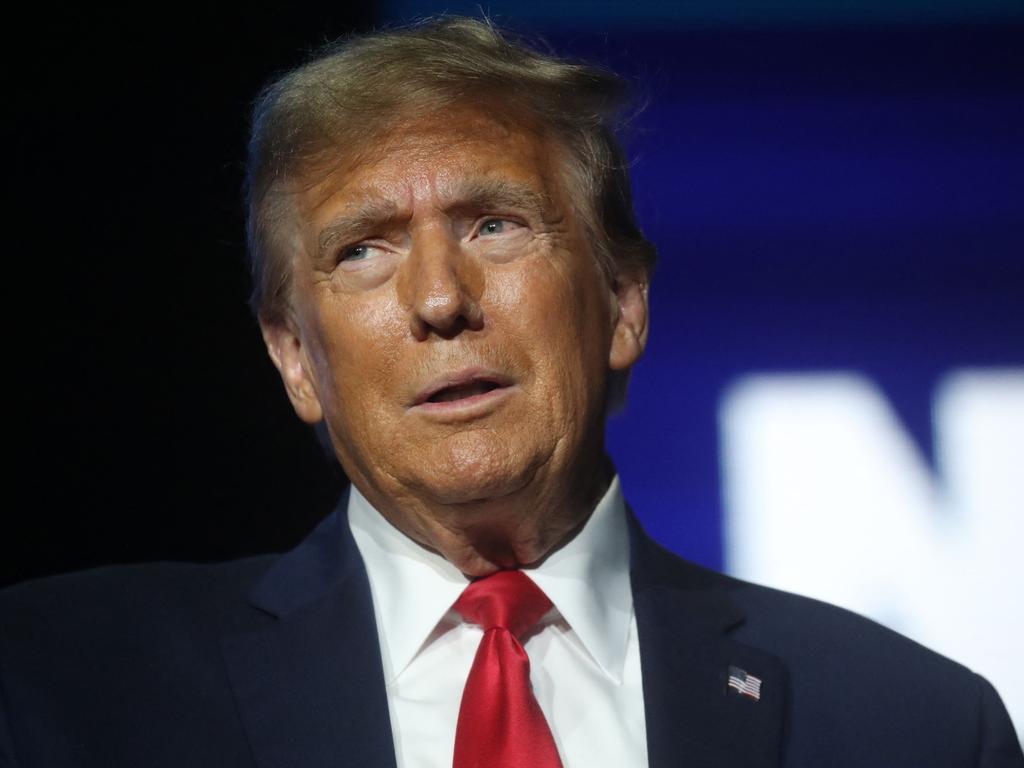
“Many of our NATO allies express real fears that Putin is only getting started in Ukraine, that Ukraine could be just the early phase of a new major war in Europe,” Professor McFaul warns.
“At a time when the United States should remain especially engaged in European security, too many American politicians are arguing for retreat and disengagement. Discontinuing aid to Ukraine now would echo appeasement and isolationist policies from the 1930s, and we know how that turned out. We cannot repeat those same mistakes today.”
But that’s precisely the agenda being pushed by US Senate and Congressional Republicans, and their aspirant president.
“Shame on you”, Polish Prime Minister Donald Tusk lambasted US Republicans for rejecting an aid package to embattled Ukraine late last week.
Dear Republican Senators of America. Ronald Reagan, who helped millions of us to win back our freedom and independence, must be turning in his grave today. Shame on you.
— Donald Tusk (@donaldtusk) February 8, 2024
His nation has previously been the subject of Russian invasion and occupation. It’s on Europe’s front lines once again.
“Dear Republican Senators of America. Ronald Reagan, who helped millions of us to win back our freedom and independence, must be turning in his grave today. Shame on you,”
The Trump card
A group of senior European international affairs academics have written an open letter published by the journal Foreign Affairs. They say Europe can no longer consider the US to be a friend.
“A re-elected Trump would be completely unchained from the old, pro-democracy Republican establishment,” they argue.
“He would likely surround himself with loyal administrators who do not challenge him. Moreover, the world has grown accustomed to his outrageous statements and decisions, making individual transgressions feel less shocking and less crucial to resist.”
And they warn Europe should listen to what Trump says – just as they should have listened to what Putin was saying before he attacked Ukraine.
Trump says he will tell Putin to end the war in Ukraine “in 24 hours”.
He says he will end all support for Ukraine.
He will demand Europe reimburse the cost of US equipment and ammunition already supplied to Ukraine.
And he says he won’t support any NATO member he feels hasn’t paid for it.
“Putin would likely interpret even the slightest hint that Trump may not fully honour the US commitment to NATO’s Article 5 as an invitation to test the robustness of the transatlantic alliance, possibly even in the Baltic States,” the analysts predict.
Europe is not blameless, they concede.
The NATO treaty is a promise between 31 nations that an attack against any one of them is an attack against all.
Among its agreements is a stipulation that members should contribute 2 per cent of their GDPs towards defence spending – on products and services of their choice.
Most states have regularly failed to spend this quota.
But many are already well down the track of readjusting their budget spending in the face of a proven threat – Putin.
“Obama, Trump, and Biden all have pushed our NATO allies to spend more,” says McFaul. “Those numbers have continued to go up — way up — during the Biden era because of Putin’s invasion of Ukraine.”
A new world order?
“Many longer-term consequences of Trump’s first presidency are still unfolding: peace around the world is unravelling, and authoritarian leaders are becoming bolder,” the European analysts warn.
Dismantling the NATO alliance will collapse the global power balance in favour of an “Axis of Authoritarians” forming around Putin, China’s Chairman Xi Jinping, North Korea’s Chairman Kim Jong-un and Iran’s Ayatollah Khamenei.
“Appeasing Russia now will only lead to more problems for the United States in the future,” warns Professor McFaul. “That is why an investment of $US60 billion in aid to Ukraine now could help save us more money and more lives (maybe even American lives) in the future, just as greater US assistance to Europe and our Asian partners in the 1930s might have helped to deter Hitler earlier.”
But it hasn’t happened yet.
“It is not too late to reverse these ominous parallels to the 1930s,” adds McFaul. “We, Americans, can resist the temptation to pretend that Russia’s current war in Ukraine will not spread to the rest of Europe and actually do something about it.”
Money, adds McFaul, isn’t the value of the NATO alliance.
“Our greatest advantage compared to China and Russia are our allies. Everyone knows that … except Trump,” he tweeted. “In our common fight to defeat al-Qaeda and its ally the Taliban in Afghanistan, our NATO partners have lost more than 1000 soldiers. Estonia was not attacked on 9/11, but Estonians went to war with us and died with us to defend our collective security goals.”
But things have changed for Europe. Whatever the outcome of the November US presidential elections. Whatever Trump’s actions are, as opposed to his words.
“Even if Trump does not win in November, Europe has work to do,” the open letter reads. “It may simply no longer be able to rely on the United States to be a consistent partner, no matter who’s in charge.”
Jamie Seidel is a freelance writer | @JamieSeidel




